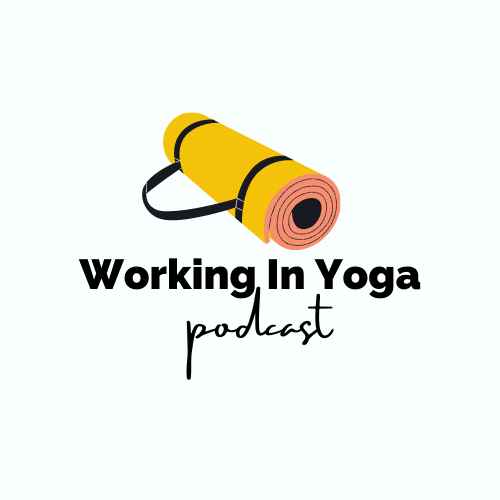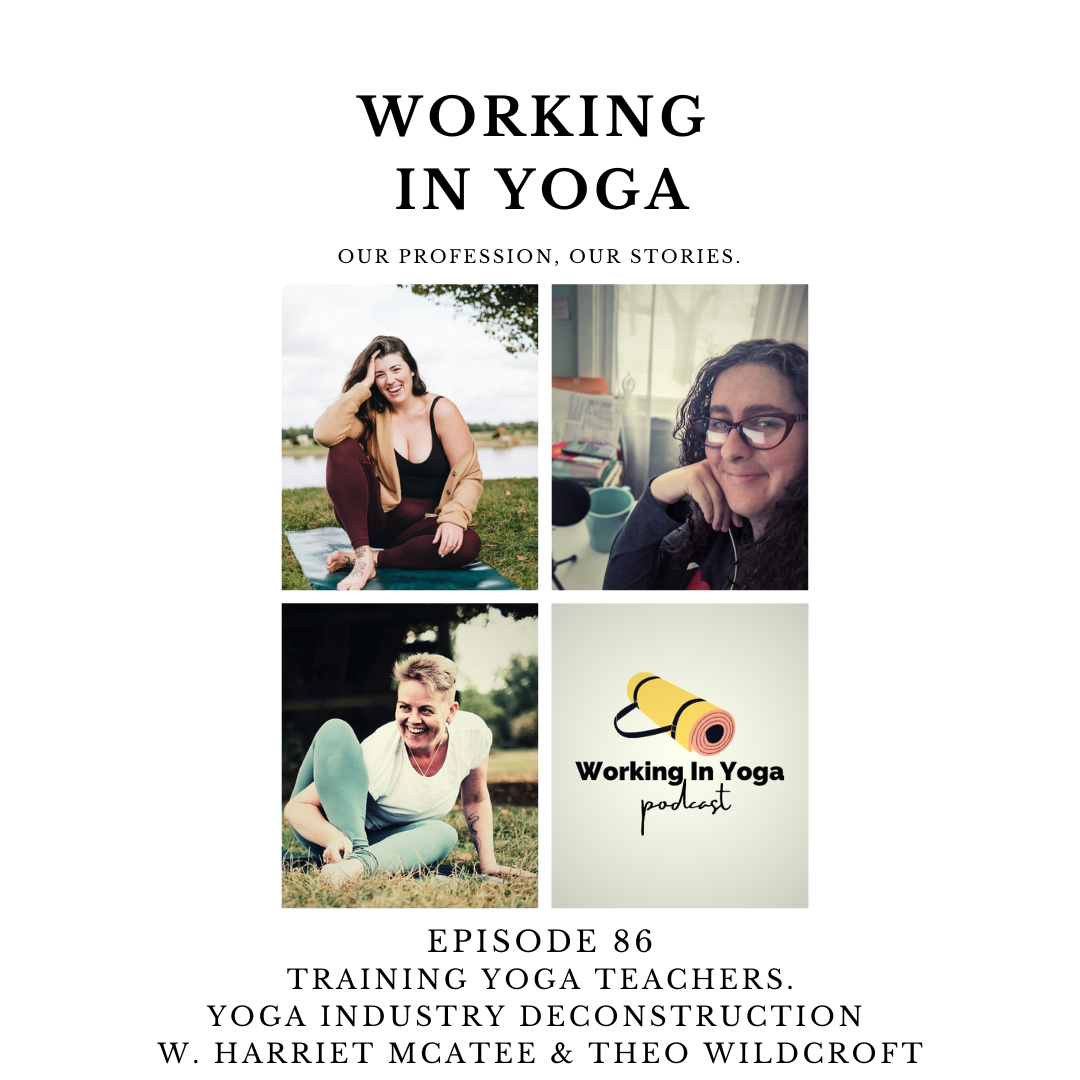Yoga Teacher Trainings. A Conversation w/ Theo & Harriet of The Yoga Teacher's Survival Guide
Yoga Teacher Trainings.
What do we love? What can we do without? What are we missing?
I asked two absolute gems of yoga professionals, Theo Wildcroft and Harriet McAtee to answer that question. They’ve collaborated for their new book The Yoga Teacher’s Survival Guide, and this conversation is a deep dive into what we love and need more of as we train yoga pros.
You’ll want to listen to every minute.
KEY TAKEAWAYS:
*Friendships are important, and professional friendships are a sweet treat in our lives. Whom have you met in your yoga teaching journey who has become an important part of your life? If you are missing that aspect of your yoga professional practice make sure you find the time to connect locally or regionally through a workshop, continuing education course, or conference, or festival.
*PEDAGOGY!! It is a major theme throughout this series. We aren’t teaching people best practices for how to teach. This is a major challenge when you run into yoga teachers who don’t know how to run a room effectively, are unsure how to bring their own thoughts to life in a respectful and appropriate way, and make us look sloppy as a profession. So please, consider not only what you teach in your yoga classes, but also how and why.
*If you aren’t being responsive to the people in the room whom you are with you, that isn’t teaching. That is live-action repetition. Now I think there is a place for that form of yoga performance or facilitation, but a skillful teacher is responding to the people in the room in real time with options, suggestions, and guidance. This isn’t just yoga teaching, this is true of teaching anything. YouTube can replace us if all we are is repetition. However, if we can answer the call of our students, even if they all have different needs, that is the best of teaching.
*Accountability discussions are critical to how we operate within our industry space. Not only should we hold ourselves accountable, but we should also hold the institutions that represent us accountable. We all get better if we own what we need to improve upon and look to our community to help shift in the right direction.
*Yoga exists in the world, and as a result can be used to reinforce oppressive systems like hetero-normative patriarchy, white supremacy, and capitalism. Our investment in deconstructing those systems for *ourselves first* is our primary action not to be part of this challenge.
*Yoga = Union or Yoga is a liberation practice are two “lost in translation” ideas within our modern yoga space. Liberation from life is different than liberation from the landlord, (unfortunately, if you ask me but whatever).
*How can you draw in more subtlety and simplicity to your teaching? That is a question we can all ask ourselves. If you normally teach 25 or 30 poses in a class, what does a class look like if you only teach 12 but discuss nuance and experience within that frame? How can you still teach “yoga” if you aren’t so reliant on the constant movement of quick-paced asana?
*Language matters. How we speak about our poses, our body experiences, somatic movement, and the words we use to make people feel comfortable and interested in their bodies and brains is important to consider. Ask yourself If they make sense, if they are welcoming, and–and this one is one we don’t talk about a lot, if they are clear and easy to understand and process for others.
RESOURCES
SPONSOR

